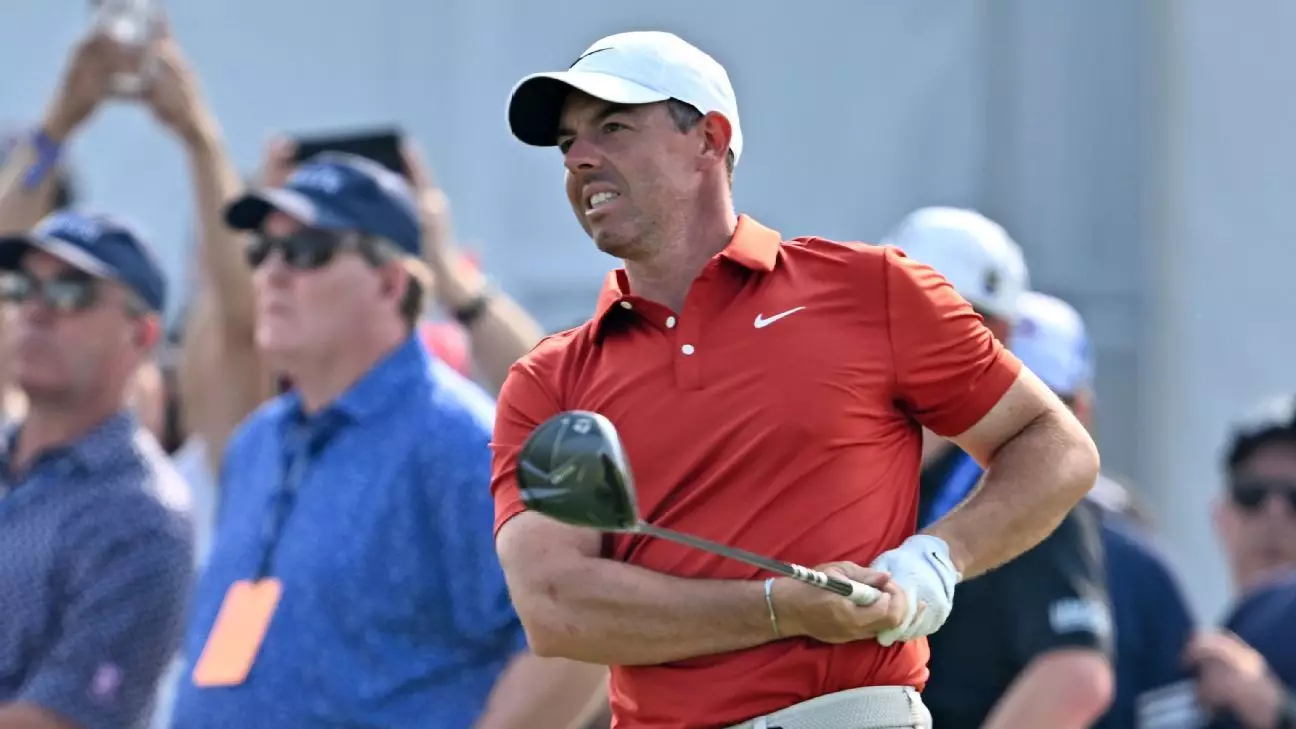The whispers of disbelief echoed around Caledon, Ontario, as Rory McIlroy—golf’s golden boy and reigning Masters champion—plummeted from grace in the RBC Canadian Open. Strikingly, McIlroy’s colossal misstep came in the form of an 8-over 78, his second-highest round on the PGA Tour, crystallizing what can only be described as a spectacular collapse. Known for his vibrant swings and strategic play, McIlroy’s recent performance was a sharp reminder that even the best can falter, leaving fans and critics alike to wonder if this is the beginning of a downturn for a player once seen as invincible.
This was not just an off day; it was an alarming exhibition of failure on the greens. Four bogeys, a painful double-bogey on No. 11, and that catastrophic quadruple-bogey 8 on No. 5 painted a portrait of uncharacteristic struggle. “Of course it concerns me,” McIlroy candidly admitted after the round, expressing the fears that will haunt any serious athlete—self-doubt. In golf, where mental resilience is paramount, such a round could signify far deeper issues lurking beneath the surface.
The Quest for Solutions
McIlroy entered the venue equipped with a new driver, hopeful that it would resolve some persistent woes off the tee. Yet, his high score belied that optimism, sparking questions about whether technological fixes can substitute for the psychological fortitude necessary in high-pressure environments. For McIlroy, it appears that the real quest is not about mastering gear, but rather about conquering the demons that arise when perfection is expected.
The golf world is rife with tales of once-great players who lost their competitive edge after reaching the pinnacle. Are we witnessing the start of a similar narrative with McIlroy? Falling short of making the weekend cut—by a staggering twelve shots—on a course that’s ironically a mere rehearsal for the lofty grooves of the U.S. Open seems tragically symbolic. The pressure mounts as he heads to Oakmont; he’ll need more than just a slick swing to find his way back into contention.
A Rising Figure: Cameron Champ’s Ascendancy
Amidst McIlroy’s turmoil, Cameron Champ emerged as a beacon of promise. Taking a commanding two-stroke lead heading into the weekend, Champ played a score of 68 with unwavering resolve. His achievement is particularly poignant given he initially gained entry to the tournament as an eighth alternate. This juxtaposition of fortunes serves as a compelling reminder that in sports, resilience often trumps regality. Champ’s performance was marked by a commendable absence of bogeys—a statistic that speaks volumes in a day where McIlroy’s game crumbled.
Champ’s expressed sentiments offer a stark contrast to McIlroy’s introspection. While Rory sought clarity, Cameron simply conveyed confidence. He dug deep and made it work amid the pressure—a crucial trait that elite athletes must cultivate. The narrative of underdog triumphs over established elite could be a soothing balm in a sport perpetually in the throes of dramatic narrative arcs.
The Ripple Effect in Golf
The drama at TPC Toronto has rippling repercussions beyond just the participants. Spectators and aspiring players watch intently, absorbing the stories that unfold—both of triumph and defeat. McIlroy’s downward spiral is a stark illustration that expectations can sometimes be the heaviest burden. The expectation of greatness creates an insatiable hunger for success, but it can also anchor one in doubt.
In these tense moments, we must not overlook the other commendable performances at the RBC Canadian Open. Players like Andrew Putnam, Thorbjørn Olesen, and Nick Taylor demonstrated skills that not only challenge but can inspire. This event highlighted that the future of the sport is bright with emerging talent who are eager to seize their chances.
In cutting-edge golf, where technology plays a vital role, the mental game remains pivotal—a fact that champions like McIlroy must reconcile. The pressure to maintain a façade of invincibility must be peeled away to allow for growth, humility, and retreat to the roots of the game. Golf is more than skill; it is a journey of self-discovery, a battle with oneself where humility and resilience must dominate even in glory.


Leave a Reply